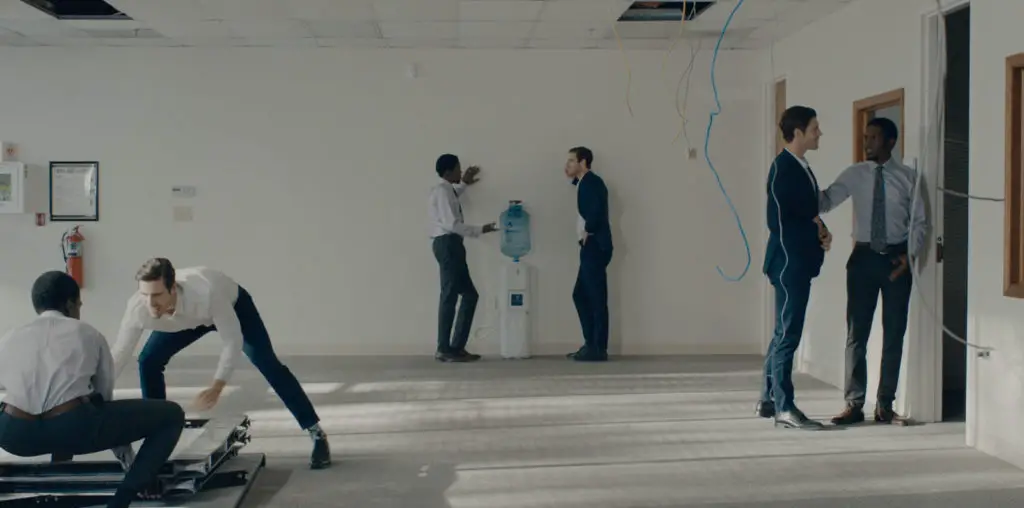
Hou Hsaio-hsien’s “Millennium Mambo” took two years to journey from winning the Grand Prix Technique at the 2001 Cannes Film Festival to snagging an American theatrical release, and honestly it was two years too long. This extraordinary work of cinematic art is among the most sublime, compelling and beautifully crafted films to grace the big screen.
The film is set in Taipei and aims its attention on Vicky, a young woman living in a cramped apartment with her druggie boyfriend Hao-Hao. Their relationship is slowly destructive, thanks to Hao-Hao’s paranoia and jealousy (he keeps tabs by filtering through her handbag to check her receipts and phone card billing) and Vicky’s lack of self-respect (she winds up being hauled into a police station when Hao-Hao is collared for stealing his father’s Rolex). Their landlord, who has little love for the couple, arranges for Vicky to get work as a bar hostess. During the course of her employment, she begins a relationship with Jack, a friendly middle-aged gangster who takes an immediate shine to Vicky. While Jack’s interest with Vicky is more as a buddy than a lover, Vicky is able to use Jack as a stabilizing force to break up with Hao-Hao. Yet Hao-Hao is not willing to let go and he proceeds to stalk her at her bar. Complicating matters are Jack’s gangster staff, whose surplus muscle and deficient brainpower creates problems which he is unable to handle.
Hou’s film style is celebrated for his long takes and “Millennium Mambo” allows him to use this approach to its fullest. The action is shot in tight, compressed scenes that are usually illuminated by harsh lighting (garish neon and fluorescent sources for the club sequences, drab natural lighting for the scenes in Vicky’s various apartment residences–bravura work by award-honored cinematographer Mark Lee Ping-Bing). Within this parameters, Hou allows his actors to unfold the story in beautifully modulated performances that capture the essence of lives slowly frittering into wreckage. “Millennium Mambo” is not about a few big acting scenes, but a host of small gestures, glances and bursts of dialogue which signal the characters’ lives on their steady route to disaster.
As Vicky, actress Shu Qi gives a breakthrough performance which should signal her arrival as a new international star. This is not Peter Travers-style gush-slush. The woman is drop-dead gorgeous, to the point that it is easy to forget the story and just stare at her in solid awe. But while it would be quite fun just to watch her walk around the screen, she more than justifies her screen time with a killer performance that is so subtle you could forget she is acting. In bringing Vicky’s self-destructiveness to life, Shu Qi plays down the excess edges of her character’s dilemma and finds the soul of a woman who doesn’t really care if her world is sliding to ruin. Chain-smoking nonchalantly and enjoying a little too much liquor in order to have her attractive male admirers escort her home, she is self-indulgent and carefree in her desire to overspend her life. But when things go wrong, she signals her displeasure with bare yet tight clues of her feelings: sideways glances at her druggie boyfriend drip with contempt, her stiff body movement across the apartment to clean up the mess left by a drug party, etc. If “Millennium Mambo” was an American film (or worse, a Hollywood film), the actress playing Vicky would chew the scenery in hopes of getting an award for dramatic overkill. Here, mercifully, much more is achieved by doing what appears to be less.
Also worth noting is the techno music score from Lim Gion and Yoshihiro Hanno. Their throbbing beat spices the club scenes, but also serve as a heartbeat counterpart when the action shifts into the real world and the characters reflect on their private confrontations and sorrows. At a time when so many films have music scores that literally clobber the viewer to cue emotional reactions, this film’s score thrives with the film’s style and direction.
“Millennium Mambo” is designed as the first of a new trilogy outlining changes in today’s Taiwanese society. If this is any indication of what to expect, parts two and three must get into theaters faster than part one.
Disagree with this review? Think you can write a better one? Go right ahead in Film Threat’s BACK TALK section! Click here>>>
